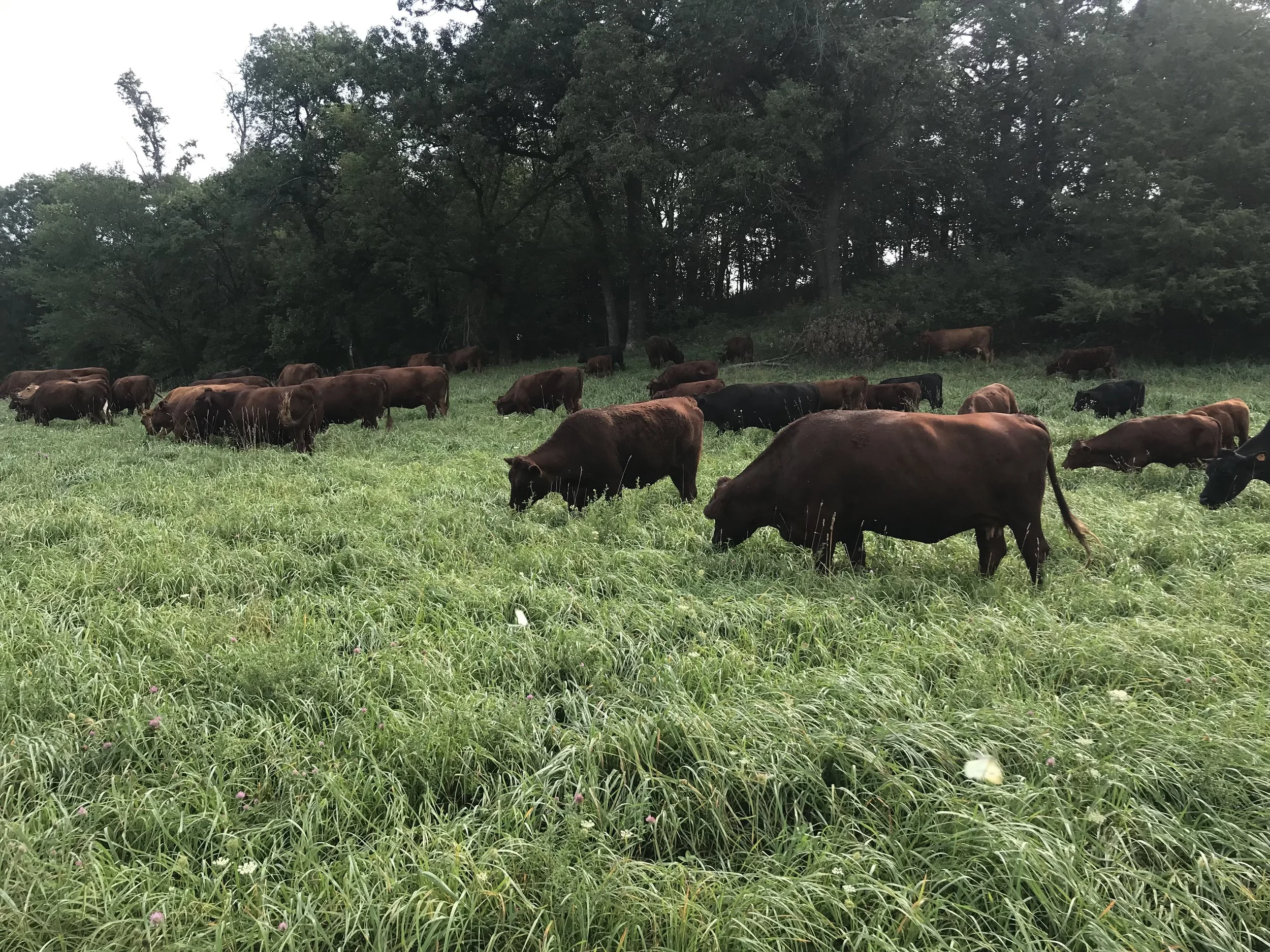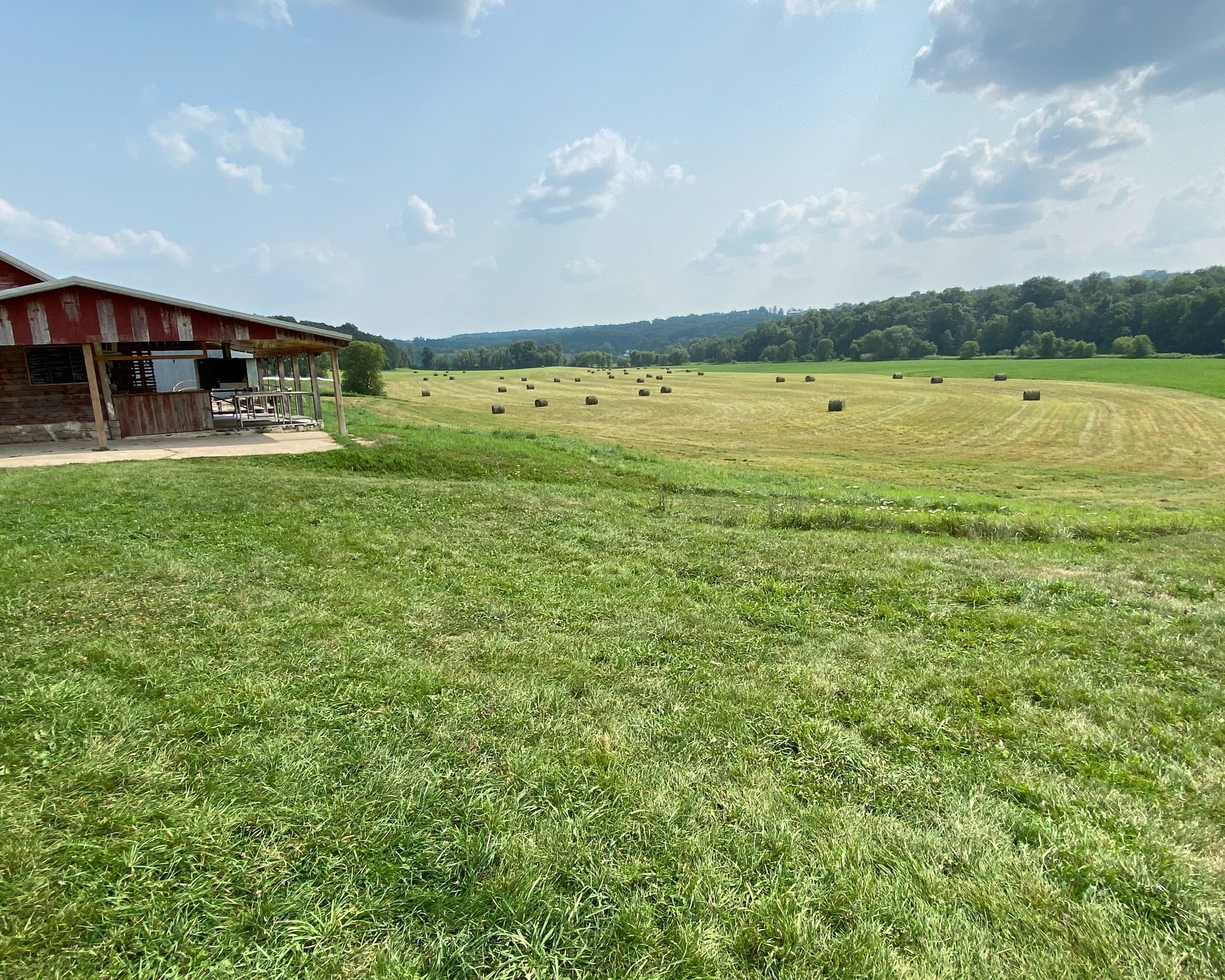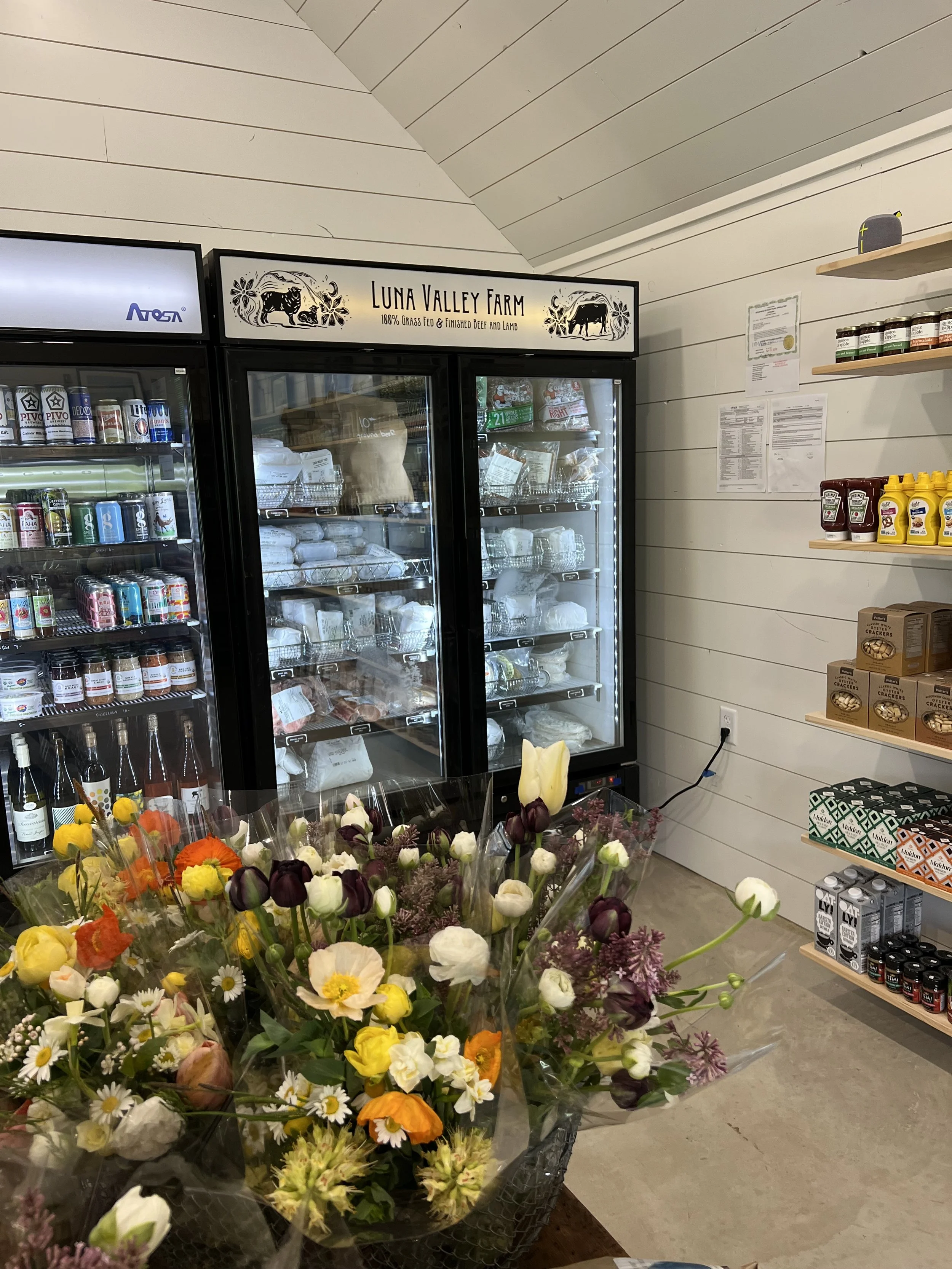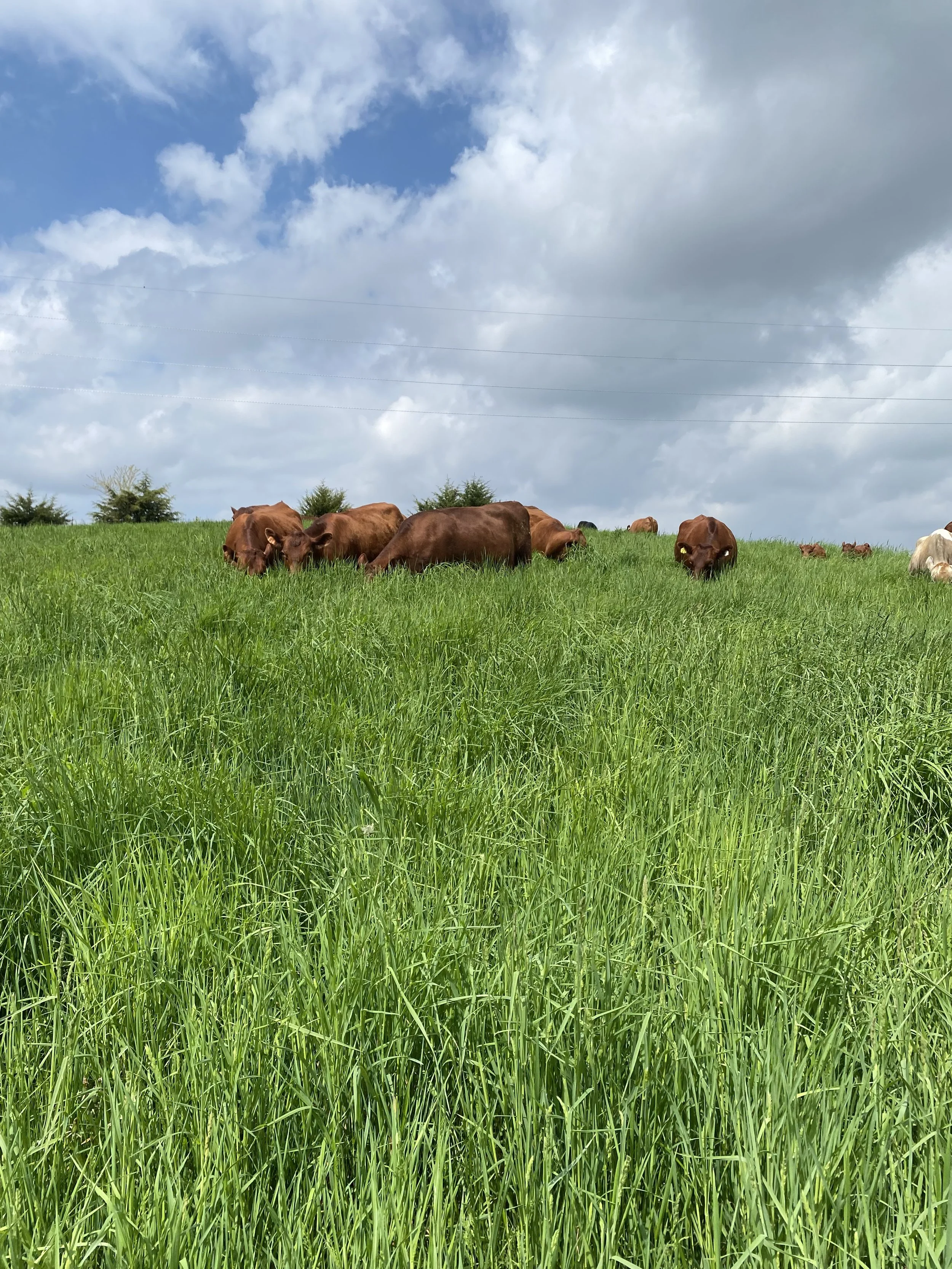
Regeneratively Produced 100% Grass Fed Beef
Our 100% grass fed beef is raised with love for our animals, soils, waterways and future generations. Our cattle are born on pasture in the spring and spend their entire lives outside, grazing sweet forages on our small farm.
When you buy our beef, you’re buying more than tasty, nutrient dense meat! You’re helping us protect soil and water resources, and encouraging the growth of deep-rooted grasses. We are developing a regenerative agricultural system that aims to give more than it takes.
OUR PRACTICES
RED DEVON BREED
Most of our cattle are a breed called “Red Devon.” We selected this breed because they thrive on a forage-only diet and do well in our landscape and climate.
ROTATIONALLY GRAZED
When the grass is growing, our cattle are getting moved to fresh pasture almost daily. Our system of high density stock grazing improves the nutrient cycling process and microbial activity which leads to increased plant health, vigor and water infiltration.
Frequent pasture rotations are good for the health of our animals and the health of our land. We allow our pastures to rest for at least 45 days before bringing the cattle back to the same area to graze.
REGENERATIVE PRACTICES
We protect our soil and water by keeping our farm in perennial vegetation. Our deep rooted pasture grasses keep our soils in place and draw moisture down into the earth. Through grazing we are able to transform the rough parts of our hilly farm into delicious food for our community.
OPTIMUM FLAVOR AND TENDERNESS
Throughout their lives our animals have access to high quality grass and hay, mineral and salt. Every day we provide our calves, cows and steers with the abundant nutrients they need to thrive. Our steers are harvested when they are 24-30 months old, a point at which they provide optimum flavor and tenderness and a great eating experience.
LOCALLY FED
In the summer we move the animals to fresh pasture daily. In the winter our animals eat hay consisting of forages like orchard, timothy, alfalfa, red clover, Italian rye grass and brome. We produce all of the hay that our animals eat so I guess you could say our animals eat locally!
LIFETIME GRAZED
We have a cow calf operation and all of our calves are born on pasture in the spring and are on pasture their entire lives.
In the winter we "bale graze" our cattle in a field that needs a boost of fertility. Bale grazing means we have round bales and bale rings placed throughout the pasture. The hay, bedding and manure that's left behind after a winter of grazing adds an awesome amount of organic matter and fertility to our soil! Nutrient cycling at it’s best!







